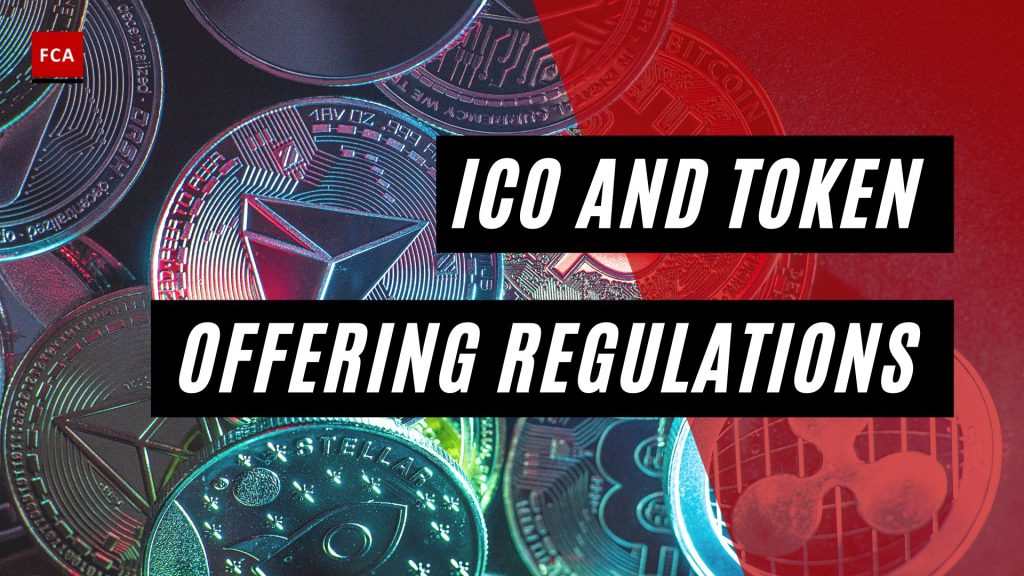ICO and token offering regulations have become a pivotal framework for ensuring the integrity and security of investments in the rapidly evolving blockchain and cryptocurrency sectors.
ICOs and IEOs have revolutionized fundraising for startups, particularly those operating in the blockchain and crypto space. But, this innovative form of fundraising has also attracted the attention of regulatory bodies worldwide due to the risks they pose for investors.
ICOs are essentially crowdfunding campaigns that allow companies to raise capital by issuing digital tokens or coins. IEOs, on the other hand, are conducted on the platform of a cryptocurrency exchange. While they share similarities with ICOs, IEOs have some differences, such as the involvement of a third-party exchange that conducts the offering on behalf of the startup.
Regulators around the globe, including the U.S. Securities and Exchange Commission (SEC), have been scrutinizing ICOs and IEOs with increased intensity. One major area of focus for regulators is determining whether the tokens issued in these offerings constitute securities. If a token is considered a security, the offering must comply with securities laws, including registering with the appropriate regulatory body unless an exemption applies. It’s crucial to understand that failing to comply with these laws can result in severe penalties, including fines and, in some cases, criminal charges.

ICO and Token Offering Regulations
For those considering launching an ICO or IEO, there are several key legal considerations to keep in mind. Firstly, the legal status of your token, as previously mentioned, is essential to determine. This will involve a careful analysis of whether the token passes the Howey Test, a test used in the U.S. to determine whether a transaction qualifies as an ‘investment contract’ and thus,
security.
Secondly, you’ll need to understand the jurisdictional implications of your offering. Each country has its own regulatory framework, and what might be permissible in one country might be illegal in another. For example, while Switzerland has become known as a hub for ICOs due to its favorable regulatory environment, China has completely banned ICOs.
Lastly, transparency is key. This involves disclosing all relevant information to potential investors, including the use of funds raised, the rights attached to the tokens, and the risks involved in the investment.
Now, let’s examine a few cases of regulatory action against token offerings. In the U.S., the SEC’s action against the blockchain company Block.one provides a significant example. In 2019, Block.one settled with the SEC over an unregistered ICO it conducted in 2017 and 2018, agreeing to pay a $24 million penalty. The company had raised several billion dollars, and the SEC determined that the tokens sold were indeed securities.
In another case, Canadian social media company Kik Interactive Inc. faced legal action from the SEC over an ICO conducted in 2017. The regulator argued that the ICO was a last-ditch effort to save the company from financial troubles. In 2020, Kik settled with the SEC, paying a $5 million penalty.
While ICOs and IEOs have opened up new avenues for startups to raise funds, they have also attracted considerable regulatory scrutiny. Whether you’re an entrepreneur planning to launch an ICO or IEO, an investor considering participating in a token offering, or a legal professional advising clients in this space, understanding the regulatory landscape and staying abreast of the latest legal developments is crucial.
By understanding the regulatory scrutiny of ICOs and IEOs, the legal considerations involved in token offerings, and learning from previous cases of regulatory action, you are well-equipped to navigate this space.

Final Thoughts
ICOs and IEOs, while innovative and transformative in the startup fundraising landscape, tread on complex legal terrains. These fundraising avenues, especially prevalent in the blockchain and cryptocurrency domain, have enticed regulators globally due to the inherent risks for investors. The distinction between a mere token and a security token, gauged by metrics such as the Howey Test, becomes vital for compliance with securities laws. Geographical disparities in regulatory frameworks further complicate the scenario, requiring astute awareness of jurisdictional nuances.
Cases like Block.one and Kik Interactive underscore the potential repercussions of missteps. Therefore, for all stakeholders—be it entrepreneurs, investors, or legal consultants—diligence, transparency, and a robust grasp of the evolving legal milieu are indispensable for safely navigating the ICO and IEO ecosystem.








